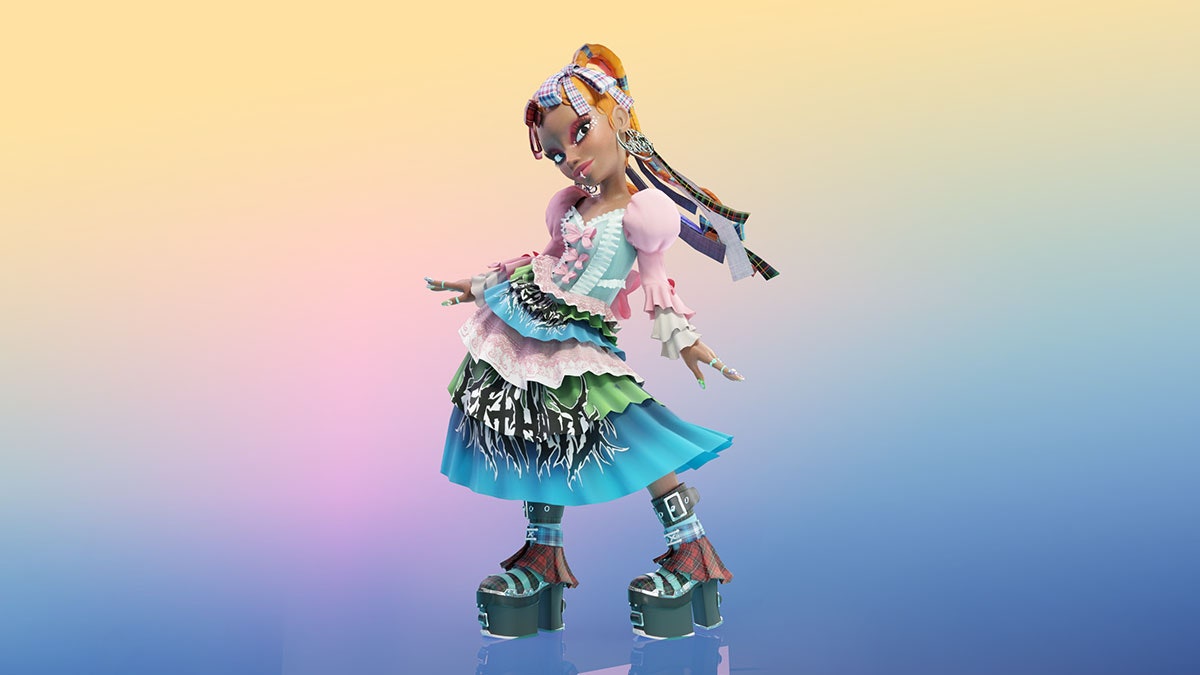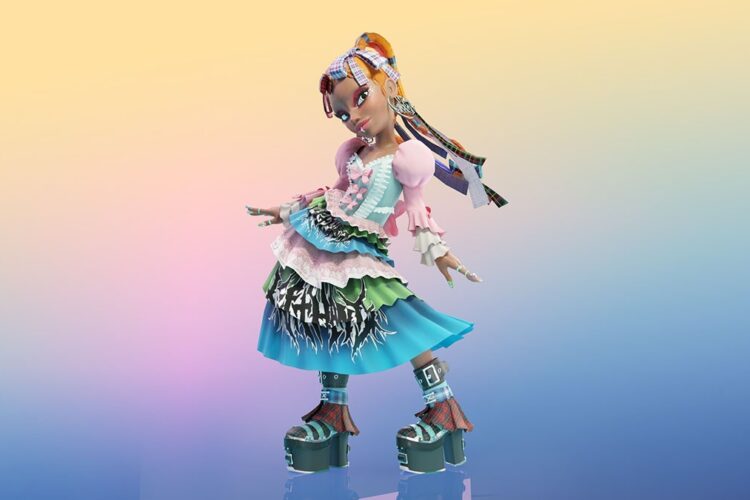
Also last week, Draup, a new company created by digital fashion influencer Dani Loftus, announced the first 26 winning applicants chosen to participate in its inaugural Digital Fashion Residency programme, a free six-week course created with blockchain-based art curator and consultancy Vertical and decentralised social media network Lens Protocol. The programme was marketed to both existing digital designers and those interested in getting started. While about 70 per cent of the 139 applicants did have experience, others had backgrounds in areas including traditional fashion, coding, styling and virtual effects, Loftus says. Workshops will cover the evolution of digital fashion, digital textile creation, AR, gaming and more, and at the end of the programme, residents will work on a final project that will be exhibited in October.
Vertical has hosted a number of other workshops related to Web3 and art, but this is the first to focus on fashion. “We saw artists and creators who were running into the space and then found themselves completely lost as to how to navigate, or what the technology was about and how they could use it to further their practice,” says Vertical founder and CEO Micol Ap. “Digital fashion is an area of art and culture that is so native to the Web3 ecosystem that we decided it would be important to focus a programme specifically on this topic.”
Companies whose futures rely on the success of these artists are investing in creators as a way to invest in their own platforms, similarly to how social media platforms have been known to pay influencers to make content. Fortnite-owner Epic Games has a similar fund to reward talented creators. Syky gets a percentage of revenue from the sales from the artists in its collective, and Adidas earns revenue from any sales related to its recent artist residency. In short, their investments are engineered to make it easier to buy, wear and benefit from digital fashion.
They are also helping to bring it, slowly, to the mainstream. “We hope to inspire by providing not only training but also community,” Ap says. “When the world is mocking what you do, that’s when bonds like this become most important.”
Just don’t say ‘metaverse’
The metaverse and Web3 as concepts have seen public sentiment shift as pop culture hype has waned, which extends to digital fashion, NFTs and digital spaces. Why would a spate of investors and founders dedicate resources to encouraging more people to learn how to create and monetise digital and phygital fashion?

